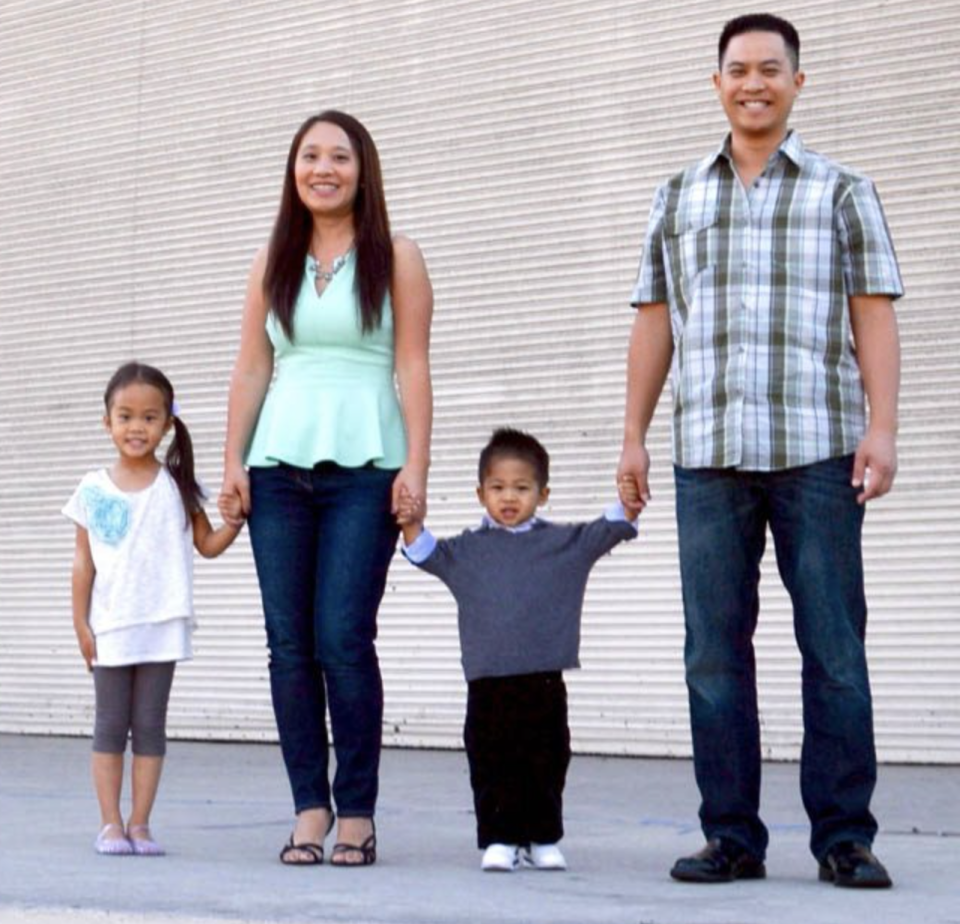'Money is a tool:' Early retiree Michael Quan shares the financial lessons he's teaching his kids
Michael Quan’s enjoying retirement, except he isn’t living out his golden years. He’s only in his mid-40s.
Quan retired in 2012 when he was 36 and he sold his IT consulting company.
He lives with his wife, who still works as a teacher, and their two children, ages 6 and 8, in Southern California. The family’s net worth is well over $2 million. Their comfortable life was made possible by following the personal finance movement known as FIRE, or financial independence/retire early.
FIRE subscribers adhere to its tenets of saving huge percentages of their income, frugal living, and aggressive investing that enable followers to stop working well in advance of conventional retirement age.
Cashay caught up with Quan, who writes his own personal finance blog, in advance of Father’s Day to discuss the importance of teaching your children how to have a healthy relationship with money.
[Author’s note: Interview has been edited for clarity and length]

What’s the most important money lesson a dad (or mom) can teach their kids?
Michael Quan: Money is a tool. It's kind of like a knife, right? It can either do a lot of good or it can do a lot of bad. So it's really a function of learning how to use that tool so that you can ultimately be the most effective with it as you get older.
What advice would you give dads (and moms) planning for their child's future college?
MQ: My parents paid for my college and part of me wanted to do the same thing for my children. However, the more I’ve thought about it and the more I discussed it with my wife, we realized that we want them to kind of have some skin in the game.
In order to do that, it's not just paying for their whole college tuition, but rather being a supplement to them. That way they can learn the power of the dollar or money in general, so that they can ultimately have some skin in the game or be invested, personally.
Being mom and dad, we’ll definitely help out but that’s our part as a gift. It's making sure that they have some personal investment into it as well.
What money advice would you give dads (and moms) as they deal with the fallout from the pandemic?
MQ: This is a really great opportunity for parents to discuss money with their kids and to be observant of money markets and economic moves. So really explaining to them that sometimes the economy moves in ways that you can't ever anticipate or anyone could have anticipated. For instance, this pandemic that’s literally affecting millions and millions of people.
Ultimately taking that opportunity to say, sometimes bad things happen with money and you have to be flexible enough to be able to adjust. I think a lot of people aren't doing that and other people have tougher times, but for the most part, I think people are learning resiliency, which I think is a good lesson, as well as flexibility.
They're also learning things like creativity. People have gone out and they’ve started businesses based on the needs of other people like creating face mask businesses when there was a shortage. There's a great lesson in there as well.
How do you explain FIRE to your children?
MQ: The best lesson in FIRE, just in general, is that again money is a tool. If you learn how to use that tool early on, then you have a lot of options later on in life and you can do virtually anything that you want if you take the time to really understand how money works.
Beyond that, really teaching children the basics of money management. That means understanding income and expenses and then the leftover is your positive (or negative) cash flow. Teaching children that relationship dynamic and where money comes from, how it’s spent, and saved.
With FIRE, it's really about kind of creating that mindset, first and foremost. The rest of it is logistics, and most people can figure out logistics and follow a path. But until you have that mindset in place, it's pretty difficult to achieve.
And what about the ‘RE’ in FIRE?
MQ: My kids realize their daddy doesn't have a traditional work situation. What I explained to them is that there is freedom to choose. There's traditional retirement which means the complete cessation of working for money. I personally have a broader definition of retirement. I think most FIRE individuals do, too. Once you get to ‘FI’ of financial independence, you have freedom to do other things.
For me, it's about being as authentic as I can be to myself by living within my values, and then ultimately, giving and serving others. I want to share this information. I want other people to have this freedom to be able to do what they want to do.
For me, the first five or six years of FIRE was literally staying at home with my kids and being fully present with them. I explained to them that I was very lucky, and when I was younger someone told me that it was possible to use your money as a tool to leverage, so that at some point in your life, you don't have to worry about money anymore.
From that point, I can basically do whatever I want, I can play with my kids as long as I want, I can go to all of their school functions, I can volunteer in their classrooms. And not everyone gets the opportunity, so I let them understand that this is a privilege. But in order to have the privilege, you have to place yourself in a situation where you're able to use money as a tool and use it effectively.
What money lesson/advice/mistake did you learn from your dad?
MQ: My dad is great because he was a certified public accountant. He taught me to understand numbers, cash flow, assets, and liability. That's something that is incredibly important, regardless if you're achieving FIRE or if you want financial security. It's a fundamental starting place.
One thing that he also taught me was frugality and to conserve my money. If I had $100 coming in, I saved 50% of it so I had $50 into a savings account, and I only spent $50. That really gave me that habit and that mechanism to operate frugally. Conversely, the problem with that mentality is that it's a little bit restricting in the sense that it also felt like we never had enough. As I've grown older and I've come into my own thoughts and ideas, I’ve taken lessons that I learned from my mom and combined them together.
I want to teach my kids relative frugality and emphasize the income versus the expense. Essentially, if you increase your income, then you can still spend money on things that are important to you. Take your Starbucks habit. It’s true if you cut back and invest those proceeds, it can grow and develop over time. For some people that's necessary. But for others, if they focus on the income side of things, and have an abundance mindset, I believe that's more empowering to people.
Instead of taking that $100, saving $50, and then spending $50, why don't you figure out how to make $200, and then save $100, and then invest $100? That way you can spend the whole $100 and get the full benefit of the $100 that you wanted to spend in the first place and you've also increased your savings.
A lot of times personal finance bloggers and advisors are a little bit too heavy on the expense side, and not enough on the income side.
My dad also taught me to keep focus and my eye on the outcome. When you're younger, you have lots of ideas, and you might want to try a lot of different things. And that's great that's not to say not to do that. However, he said, maintain your focus to make sure that you know your outcome. I had seen a couple of my uncles become financially independent when I was very young and I knew that's what I wanted for myself. I decided early on that I wanted to reach that place when I was at least 30.
The final thing that he taught me was to become an entrepreneur and an investor. As a CPA, he handled a lot of numbers for his clients and a number of his clients were businesses. He noticed a pattern that a lot of entrepreneurs and investors have done very well for themselves. He always told me to look at trying to build a business and create value for other people and become an investor to create passive income.
Cashay: Any final thoughts?
MQ: My parents ultimately divorced, but through that, I learned that money can be a bond to a family or it can tear a family apart.
The advice I'm going to be giving to my children is to communicate early and often about money. If you do it early enough upfront, and you don't get too many emotions attached around money itself, then you can prevent some bigger turmoil down the road and really use it as a bond instead to bring the family together.
Stephanie is a reporter for Yahoo Money and Cashay, a new personal finance website. She can be reached at stephanie.asymkos@yahoofinance.com. Follow her on Twitter @SJAsymkos.
Read more information and tips in our Family section






